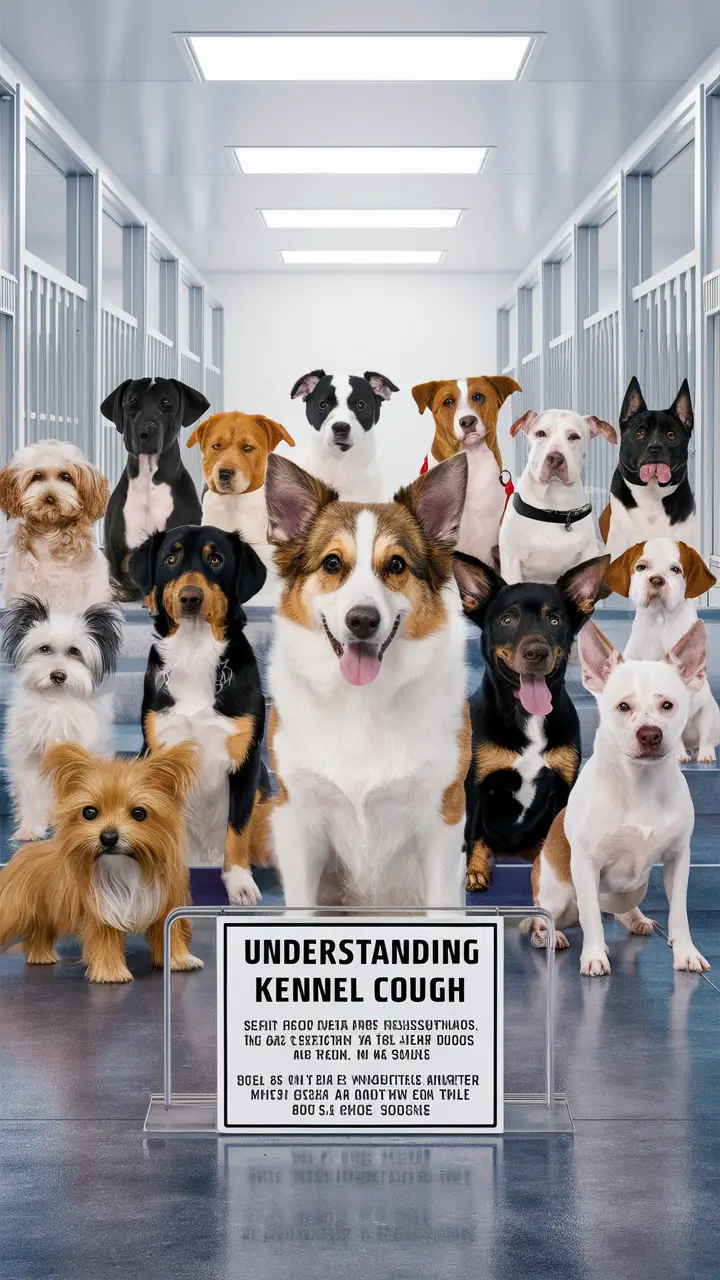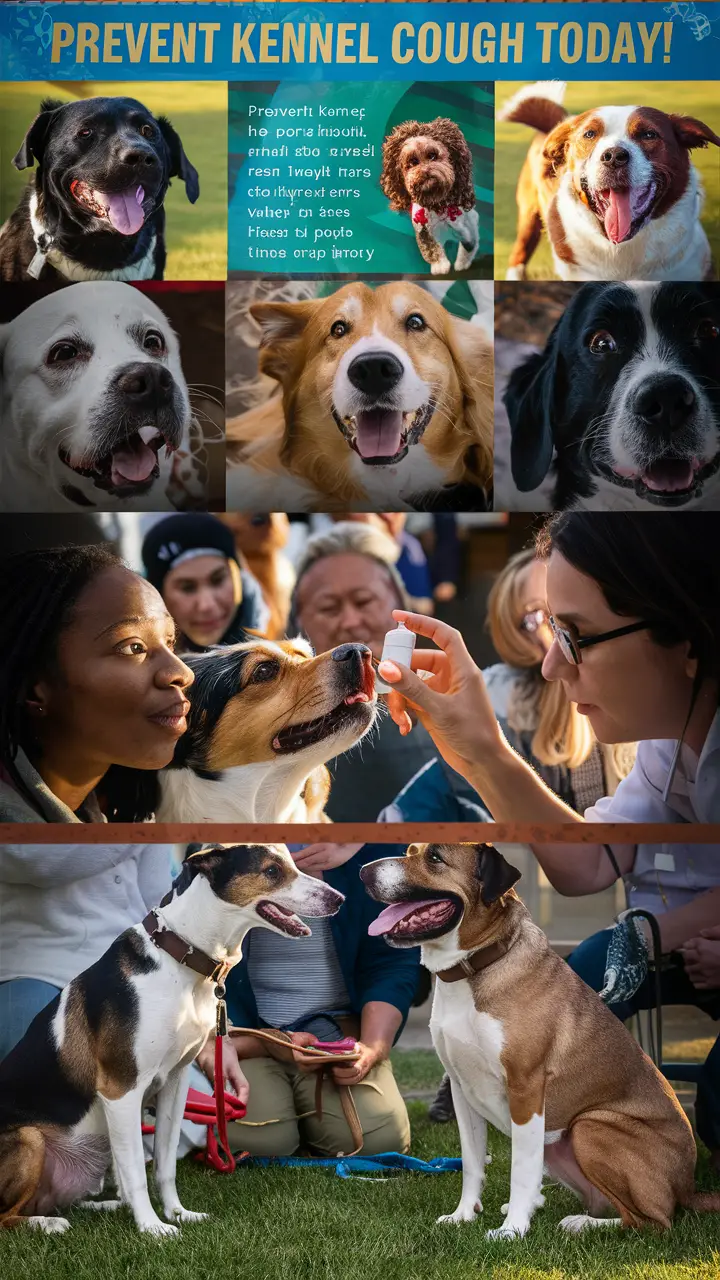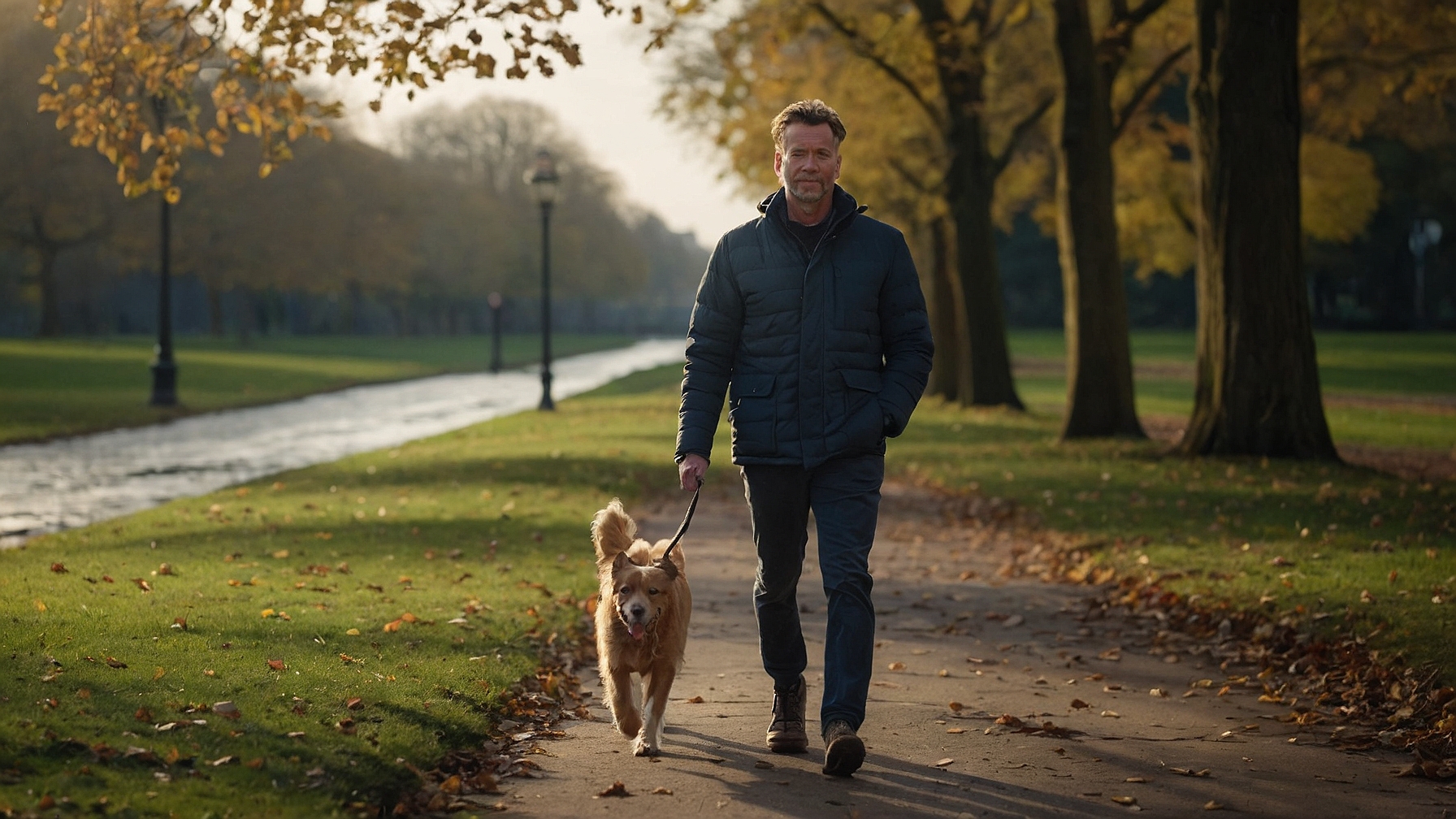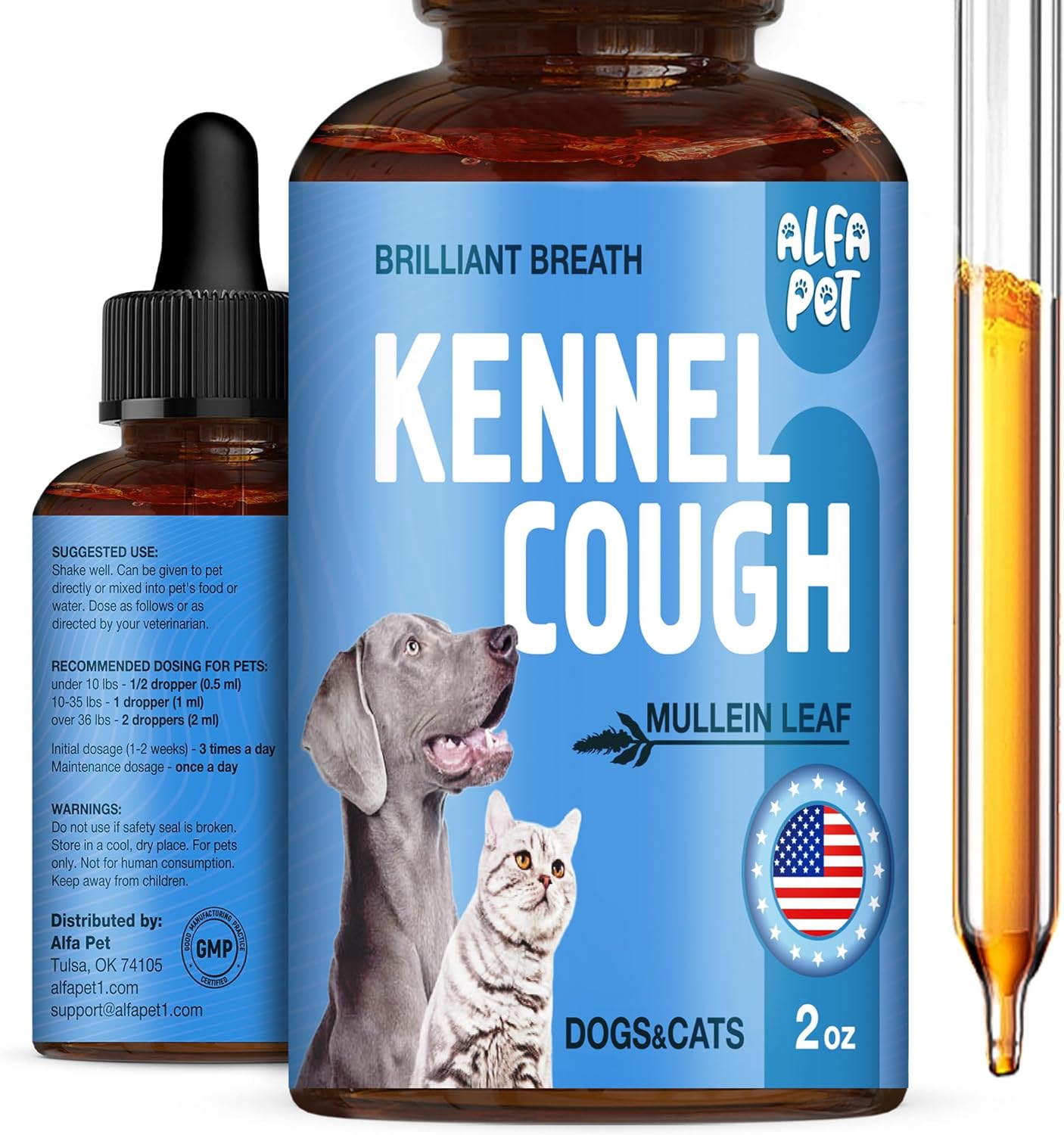Introduction
As kennel cough season approaches, it’s crucial for dog owners to understand the risks and preventive measures associated with this highly contagious respiratory disease. Often manifesting through a distinct honking cough, kennel cough primarily affects dogs in environments such as kennels and dog parks where they are exposed to large groups of other dogs. The disease, also known as canine infectious tracheobronchitis, can escalate from mild to severe quickly without proper care and vaccination.
For those looking to safeguard their pets, understanding the symptoms like runny nose, lethargy, and loss of appetite, and recognizing the need for timely vaccination against pathogens like the canine distemper virus and canine influenza are essential. Vaccination, especially with the bordetella vaccine—available in oral and injectable forms—is a preventive step every dog owner should consider. Moreover, this season demands particular attention to hygiene and minimal exposure to high-risk environments to prevent your dog from catching or spreading the virus.
Key Takeaways
- Kennel cough, also known as canine infectious tracheobronchitis, is highly contagious and thrives in environments like kennels and dog parks where dogs are in close contact.
- Symptoms of kennel cough include a honking cough, runny nose, and lethargy, which can quickly escalate from mild to severe without proper care and vaccination.
- Vaccination, particularly with the bordetella vaccine, is crucial for prevention and is recommended for all dogs, especially those frequenting high-risk areas.
- Effective prevention of kennel cough also involves maintaining stringent hygiene practices and minimizing exposure to crowded dog areas.
- Treatment of kennel cough can vary; mild cases may improve with minimal care, while severe cases might need antibiotics and cough suppressants.
- Regular consultations with a veterinarian are essential for timely vaccination and to manage the health of dogs, especially during kennel cough season.
Kennel Cough Overview

Kennel Cough in Dogs, or canine infectious respiratory disease, is a highly contagious illness that thrives in crowded places like kennels or shelters. The disease is driven by agents such as the canine adenovirus and Bordetella bronchiseptica. Every dog owner needs to know about kennel cough, including its causes, kennel cough symptoms, and how kennel cough is treated. Proper kennel cough vaccination and understanding when dogs commonly contract kennel cough at places crowded with other animals are vital for prevention and control.
Overview of Kennel Cough (Canine Infectious Tracheobronchitis)
| Aspect | Details |
|---|---|
| Causes | Caused by a mix of agents like Bordetella bronchiseptica, canine adenovirus, and parainfluenza. Airborne droplets spread in crowded environments. |
| Common Symptoms | Hacking cough (often sounds honking), sneezing, runny nose, lethargy, reduced appetite. |
| Preventive Measures | Vaccination (Bordetella and combo vaccines), good hygiene in kennels, minimizing exposure to crowded dog areas. |
This table provides a concise snapshot of kennel cough, designed to educate dog owners about how to recognize and prevent this common respiratory condition during the kennel cough season.
Causes and Transmission
The primary way kennel cough spreads is through airborne droplets that are inhaled by dogs, particularly in places like dog parks and boarding kennels where many dogs gather. Infected dogs can easily transmit the disease even through casual contact, making kennel cough highly contagious. This makes management of the environment and understanding the risk for contracting kennel cough key in prevention strategies.
Signs and Symptoms
Dogs suffering from kennel cough will often exhibit a distinctive hacking cough, which can sometimes sound like a honking noise. Other symptoms include sneezing, runny nose, lethargy, and a reduced appetite. Early identification of these symptoms and prompt vaccination can help mitigate the spread of this disease, and in many cases, prevent more severe outcomes.
Preventing Kennel Cough

Preventing kennel cough effectively requires a combination of vaccination, strict hygiene practices, and minimizing contact with potentially infected areas. The Bordetella vaccine is especially advised for dogs that are frequently in high-risk environments such as boarding facilities and dog shows. These preventive measures are critical to stop the spread of this infectious disease among dogs.
Advanced Strategies to Prevent Kennel Cough
- Enhanced Environmental Controls: Regularly upgrade air filtration systems and increase airflow in kennels to reduce the concentration of airborne pathogens.
- Scheduled Sanitation Protocols: Implement a rigorous cleaning schedule with veterinary-approved disinfectants specifically targeting respiratory pathogens.
- Controlled Dog Interactions: Manage the social interactions of dogs by scheduling playtimes in smaller, more controlled groups to minimize exposure.
- Health Monitoring Systems: Establish a health monitoring system to quickly identify and isolate symptomatic dogs before the infection spreads.
- Education for Dog Handlers: Provide ongoing training for staff and dog owners about the signs of kennel cough and immediate steps to take if an outbreak occurs.
This list aims to provide dog owners and kennel operators with actionable strategies that can significantly mitigate the risk of kennel cough during its high season.
Vaccination Strategies
Vaccination plays a vital role in preventing kennel cough, with the Bordetella vaccine often required by kennels and dog shows to prevent outbreaks of kennel cough. Facilities typically mandate a vaccine because it is one of the most effective methods to prevent kennel cough from spreading dog to dog. Regular updates to vaccination protocols are necessary to ensure all dogs receive the best possible protection against this disease.
Environmental Management
Effective environmental management is key to reducing the risk of kennel cough. Enhancing ventilation and ensuring kennels are regularly cleaned and kept dry are practical steps that significantly lower the likelihood of disease spread. Additionally, maintaining kennels free from drafts and damp conditions helps protect dogs from not only kennel cough but other upper respiratory infections as well.
Treatment Options for Kennel Cough

Treatment for kennel cough should be tailored to the severity of the symptoms. Mild cases of kennel cough may only require basic care and monitoring to ensure they do not worsen, while severe cases might necessitate the use of antibiotics and cough suppressants to manage the illness effectively. Understanding these options can help dog owners manage the condition more efficiently and prevent its escalation.
Home Care
When managing kennel cough at home, creating a calming environment for the affected dog is crucial. It is recommended to use a harness instead of a collar to avoid further irritation of the throat during walks, and employing a humidifier can help ease breathing difficulties. These adjustments can significantly comfort a dog dealing with the dry cough associated with kennel cough.
Medical Treatments
For more serious conditions, especially when kennel cough in dogs leads to secondary infections, veterinary intervention becomes necessary. Antibiotics may be prescribed to tackle bacterial components of the disease, while cough suppressants help reduce the discomfort caused by persistent coughing. Anti-inflammatory medications might also be administered to reduce throat swelling and provide relief for dogs with more severe symptoms. This treatment ensures kennel cough cases are managed effectively, and prevents the spread of kennel cough among large groups of dogs.
“Kennel cough, though not typically life-threatening, can severely impact a dog’s quality of life if not treated with the appropriate level of care. Recognizing whether your dog needs just home care or medical intervention is crucial. Simple measures at home, like using a harness and a humidifier, can vastly improve your dog’s comfort.” – Dr. Karen Becker
Vaccine Information and Veterinary Advice

Understanding the range of available vaccines and best veterinary practices is crucial for dog owners looking to prevent and treat conditions like kennel cough. With a variety of vaccines on the market, it’s important to be informed about how these can help protect your pet from serious illnesses. Veterinary advice is invaluable in navigating these options and ensuring that your dog receives the most effective care.
Choosing the Right Vaccine
There are multiple vaccines available, including injectable and oral forms, to prevent kennel cough. Consulting with a veterinarian is essential to decide which vaccine is best suited for your dog’s lifestyle and exposure risks. This decision is particularly important because some vaccines may cover a broader range of pathogens or offer longer protection than others.
When to Consult a Veterinarian
It’s vital to consult a veterinarian promptly if you notice any signs of kennel cough in your dog, such as a persistent cough or lethargy. Regular veterinary check-ups are also crucial to keep your dog healthy and to prevent the onset of more severe diseases. Veterinarians can provide not only treatment but also guidance on how to manage your dog’s health proactively, especially in environments where kennel cough is a risk.
- Dog Allergy Relief
- Allergy Relief Immune Supplement for Dogs
- Dry, Wet & Barkly
Conclusion
As kennel cough season draws near, it is crucial for dog owners to recognize the importance of proactive measures and the role of informed veterinary guidance. Ensuring your dog is well-protected against kennel cough through proper vaccination and environmental management can significantly reduce their risk of contracting this disease. Whether it’s opting for the right kennel cough vaccine or managing your pet’s interaction with other dogs, the right steps can make a big difference.
Continual veterinary advice is indispensable, not only for kennel cough but for overall pet health management. Regular check-ups and staying updated with the latest vaccination protocols are fundamental to keeping your dog healthy. As the season changes, keeping your pet safe from this highly contagious disease becomes more crucial, emphasizing the need for vigilance and proactive healthcare practices.

James Dunnington is a versatile professional whose career spans over 20 years, merging wildlife conservation, digital expertise, interior design, and insights into the world of technology and finance. Starting with his passion for the natural world, he explored diverse ecosystems, gaining unique insights into animal behavior. Transitioning into the digital realm, James harnessed his skills to build a successful blogging career, becoming known for his ability to significantly improve online visibility for various projects.
In parallel, he established himself as a certified interior designer, where his projects stand out for their timely completion and innovative design, endorsed by local government standards. Beyond design, James ventured into cryptocurrency and digital marketing, showcasing his adaptability and forward-thinking approach.
He also demystifies technology, offering easy-to-understand advice on the latest tech trends and cybersecurity. James Dunnington embodies a unique blend of expertise across multiple fields, from the natural environment to the digital world, making him a dynamic and multifaceted professional.
